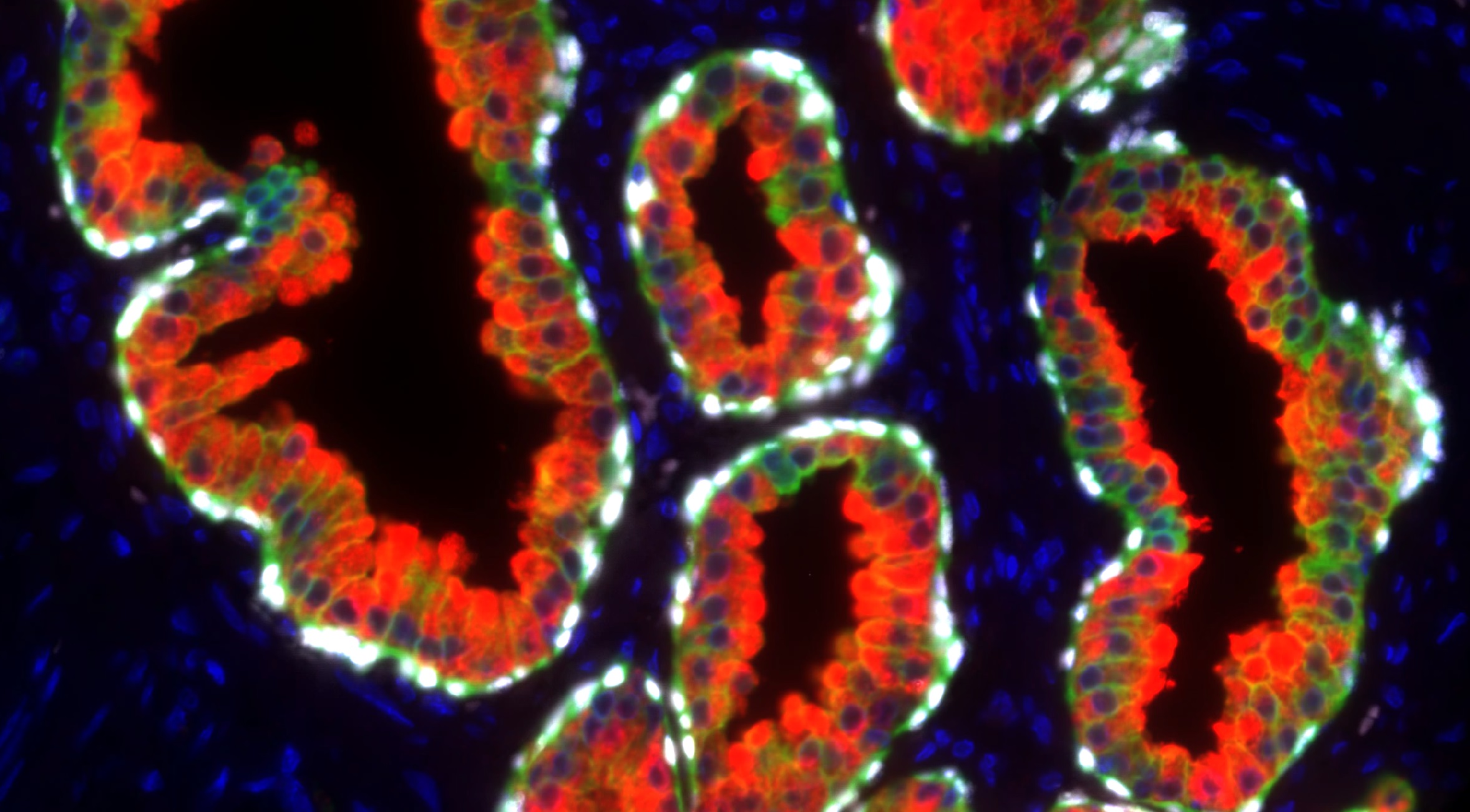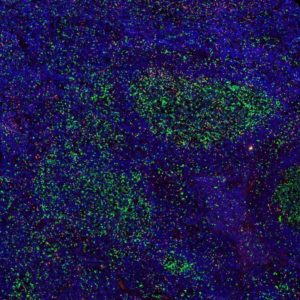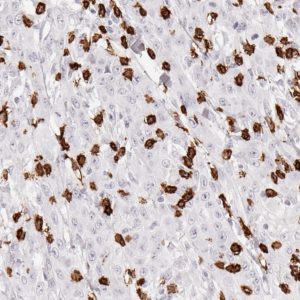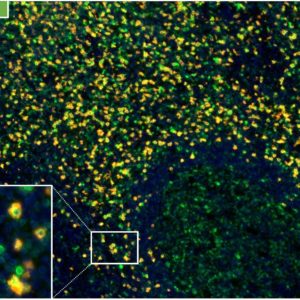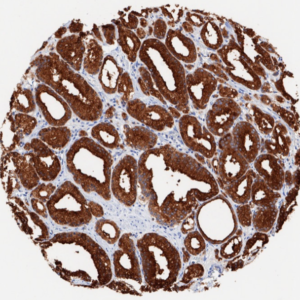Reactivity
Anti-Prostate specific antigen (PSA) clone HAM18 is the best characterized anti-PSA antibody. Antibody #DIA-PSA (clone HAM18) has been tested by immunohistochemistry (IHC) on more than 20.000 tissues for sensitivity, specificity and prognostic significance (Bonk et al, Oncotarget 2019). HAM18 has been developed for detection of prostate specific antigen (PSA) in routine formalin-fixed paraffin-embedded prostate tissue specimen to be used in brightfield immunohistochemistry but also for multicolor immunofluorescence. Data & protocols will be presented successively on PSA-antibody.com.
In diagnostic routine, PSA (HAM18) IHC can be used in the following applications:
- Carcinoma of unknown origin: Rule out origin from a prostate cancer.
- Bladder tumor of male patients without unequivocal urothelial precursor lesion suggesting urothelial origin: Rule out origin from a prostate cancer.
- Advanced high-grade prostate cancer with rather low serum PSA levels: Low PSA expression in poorly differentiated cancer suggest that serum PSA levels may “underestimate” total tumor mass of the patient.
IHC protocols
Staining protocols for anti-human PSA antibody clone HAM18
Deparaffinize and rehydrate according to standard procedures. Heat induced epitope retrieval (HIER) is required. For immuno-histochemical detection different techniques can be used: Indirect immunoenzyme labeling with a secondary antibody conjugate, biotin/(strept)avidin-based detection, soluble enzyme immune complex or polymer-based detection. To detect antibody, follow the instructions provided with the particular visualization system. The antibody is suited for immunohistochemical staining using automated platforms. Use the antibody at 1:100 up to 1:800 dilution.
References
Specific Reference for clone HAM18
- Bonk S et al. Prognostic and diagnostic role of PSA immunohistochemistry: A tissue microarray study on 21,000 normal and cancerous tissues. Oncotarget 2019 (10): 5439-5453. https://doi.org/10.18632/oncotarget.27145




